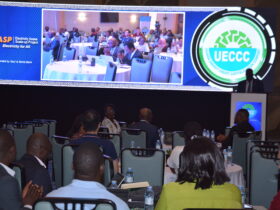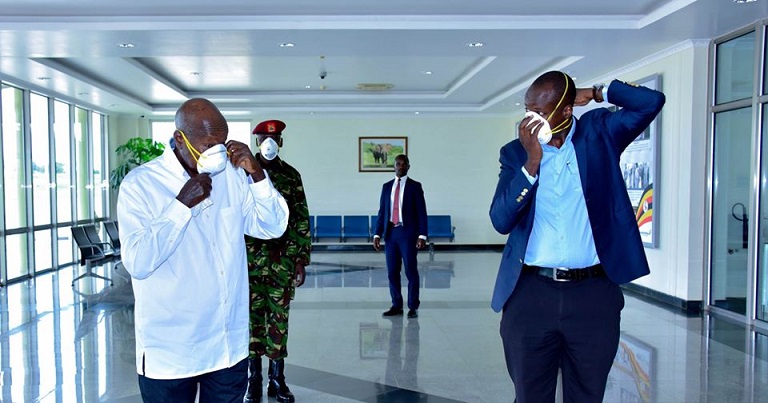Health minister Jane Ruth Aceng warned Ugandans against buying facemasks that offer no protection against coronavirus.
“Make your facemask double layered with a pouch for a filter, which may be polypropylene, tissue or toilet paper. It should be wide enough to cover the nose, mouth and the chin. The loops should not be too tight for comfort,” Dr Aceng told journalists last week.
President Museveni made it clear that both private and public vehicles would be allowed to return on the road as long as the occupants were all putting on facemasks. He also said whereas government will distribute free masks to all Ugandans aged six years and above, others are free to buy their own facemasks as long as they bought the right quality.
Dr Aceng recommended that facemasks should preferably be made of cotton fabrics and have filters that they can wash or replace after use.
She said cotton fabric masks can be worn for about six months, which saves the daily cost of buying a mask.
“Masks on sale should be sealed in a transparent polythene to avoid contamination. Wash and iron fabric masks before use,” she said.
“Fabric masks can be re-used as they are washable. They can be used as long as the fabric is not worn out, develops holes or is so thin that light can be seen through it. When the above happens, dispose by burning or throwing in a pit-latrine,” the minister added.
Doctors and virologists however argue and urge that a facemask should be changed atleast thrice a day for maximum protection.
However, there are a few exceptions where one may not wear a mask.
“Do not wear a mask when running, jogging or doing any other physical activities. It is not necessary to wear a mask when you are alone in your car but have it ready in case of another passenger or when you step out,” read in the guidelines issued by the Ministry of Health last week.












